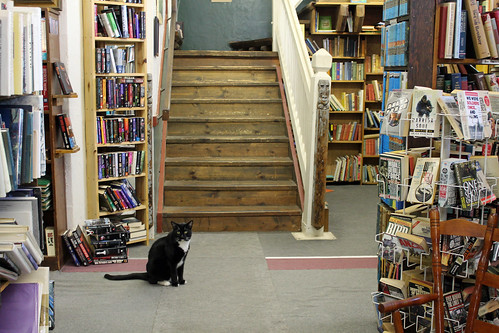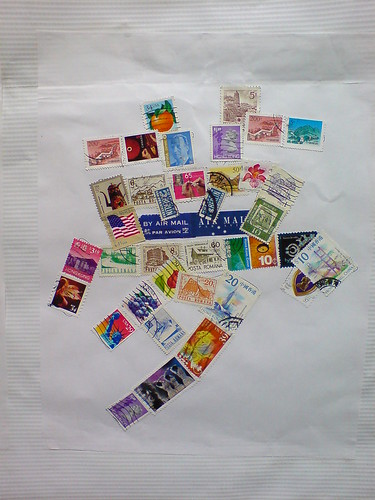Welcome to this week’s Language Blog Roundup, in which we bring you the highlights from our favorite language blogs and the latest in word news and culture.
NPR spoke with Katherine Connor Martin, head of U.S. dictionaries for Oxford University Press, about how gun metaphors have become embedded in the English language.
Kory Stamper discussed how the Iraq war transformed the English language, and Arika Okrent told us how the U.S. Army used Esperanto, a language of peace, as a language of war.
Jen Doll told us what the definition of marriage tells us about marriage equality, and Katy Steinmetz rounded up seven hang-ups in the language of gay rights.
In grammar news, Megan Garber looked at the decline of whom, and a grammar war was sparked in Britain by some dropped apostrophes, to which Robert Lane Greene and Geoff Pullum both responded.
At Lingua Franca, Anne Curzan wrote about guys, girls, and women, and Ben Yagoda spoke with an expert about March Madness cliches. In other basketball news, Ben Zimmer had a chalk talk.
At Macmillan Dictionary blog, Dorothy Zemach revealed the story behind the word wayzgoose; Gill Francis talked about weather words; Michael Rundell delved into some J.R. Ewing sayings; and Stan Carey explored some U.S. regional slang. On his own blog, Stan had fun with alternative names of the exclamation mark and asked for your suggestions.
In the week in words, Fritinancy chose fiberhood, “a neighborhood that has Internet access via fiber-optic cable,” and subtweet, short for subliminal tweet, “a tweet that refers to a person without including his or her Twitter handle; the online version of talking about someone behind his back.”
Erin McKean‘s weekly word choices included loquat, a kind of fruit; landspout, a whirling storm; ludologist, one who studies games and game-playing; and skaldic poetry, poetry of the Vikings. Erin also rounded up February’s also-rans, noteworthy words that didn’t make it into her Wall Street Journal columns.
The Word Spy spotted Proteus phenomenon, “the tendency for early findings in a new area of research to alternate between opposite conclusions”; datasexual, “a person who obsessively collects and shares data about his or her own life to improve self-knowledge and embellish self-presentation”; and crime-as-a-service, “Web-based software that enables or enhances online criminal activity.”
Meanwhile, the narcotic word of the week was sizzurp, prescription cough syrup “mixed with soda and sometimes hard candy, like Jolly Ranchers.”
Oz Worders considered the archaic girt. The Dialect Blog explored Jane Austen’s English. The Virtual Linguist examined the phrase not on your nelly as well as a country suffix, while Sesquiotica, aka James Harbeck, discussed trendy suffixes and, at The Week, Scandinavian pronunciations of common English words. The Atlantic gave us 14 Swedish words that English should immediately adopt, including ogooglebar, or “not found via Google.”
This week we learned what the word clue has to do with a ball of string, what online dictionaries are learning about us, and fifty shades of the color gray. We enjoyed these collective nouns, these old-timey political words, and these old-fashioned swear words.
We were happy to hear that landmark status is being sought for the New York Public Library’s Rose Reading room, and that the Los Angeles County Museum has made 20,000 images available for free. We’d also like to visit these weirdly specific museums and to read all these academic papers on ‘90s TV shows.
We agreed with this list of blacklisted biz speak words. We were horrified by these bad covers of classic books and hope we never get one out of a book vending machine.
We enjoyed this regional vocabulary throwdown and these 18 obsolete words that should come back in style. We loved this piece in The New York Times about how the author’s sister cured her writer’s block, and the idea of a Hip Hop Word Count database. The OxfordWords blog told us about the language of My Fair Lady, and Fast Company discussed how the the title of a movie can determine if it will be a hit or a flop.
That’s it for this week!
[Photo: “Gun Failing,” CC BY 2.0 by andorand]






